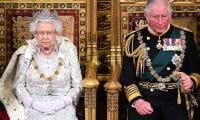Paris: North America suffered a new surge in coronavirus infections this week and US deaths increased by a fifth, while the pandemic stabilised in the rest of the world.
Here is the global state of play based on an AFP database. The number of new daily cases around the world decreased slightly by three percent this week to 639,315, according to an AFP tally to Friday.
The pandemic appears to be stabilising after gaining ground since mid-year fanned by the highly contagious Delta variant which has become predominant in most countries. However, the confirmed cases only reflect a fraction of the actual number of infections, with varying counting practices and levels of testing in different countries.
The pandemic continues to worsen in the United States/Canada region, where the number of cases increased by eight percent. Oceania saw a 23 percent increase in infections. But cases fell 26 percent in Africa and 17 percent in Latin America. There were also slight decreases in Europe of three percent, and in Asia and the Middle East of two percent each.
Gaza was the territory where the epidemic picked up most speed, with 75 percent more cases on a daily basis. Norway followed with 69 percent more, Romania 64 percent, Syria and Ukraine (60 percent more each).
At the other end of the spectrum, Indonesia and Bangladesh saw the biggest drop with 42 percent fewer new daily cases each. Ireland was down 36 percent and Cuba 30 percent. The United States continued to record the most new infections by far, with 166,367 a day, an increase of seven percent.
India followed with 42,772, an increase of 27 percent and the United Kingdom 33,456, a decrease of one percent. On a per capita basis the country that recorded the most new cases this week was Israel with 731 per 100,000 inhabitants, followed by Kosovo (642) and Georgia (620).
The US also recorded the most daily deaths with 1,144, an increase of 21 percent, ahead of Russia (796, stable). At a global level the number of daily deaths dropped just under the 10,000 mark this week, a four percent decrease. Sri Lanka led the vaccination race this week among countries with more than one million inhabitants, jabbing 1.87 percent of its population every day.
Even though they are vaccinating more slowly, the United Arab Emirates has the most advanced vaccination drive, having administered 184 first or second doses per 100 inhabitants. Uruguay has jabbed 163, Israel (161), Qatar (155) and Singapore, (149).
Meanwhile, New Zealand reported 28 new community cases of Delta variant of Covid-19 on Friday, including 27 in the largest city Auckland and one in the capital Wellington, bringing the total number of cases in the country's community outbreak to 764. Auckland has 747 of the community cases and the capital Wellington has 17 cases, according to the Ministry of Health.
All of the cases have or will be transferred safely to a quarantine facility, under strict infection prevention and control procedures, including the use of full PPE (personal protective equipment), Director of Public Health Caroline McElnay told a press conference.
There are 733 cases that have been clearly epidemiologically-linked to another case or sub-cluster, and a further 31 for which links are yet to be fully established, McElnay said. Of the current community cases, 43 cases are in hospital, including nine cases in intensive care units or high dependency units, she said. New Zealand also reported four new cases in recent returnees who came from Afghanistan and Sri Lanka.
They have remained in managed isolation and quarantine facilities in Auckland and Hamilton, according to a Ministry of Health statement. The total number of confirmed cases in New Zealand since the start of the pandemic is 3,372, it said.
In a related development, anti-vaccination protesters clashed with police in London on Friday as some tried to storm the offices of the UK regulator that approves vaccines, with police saying four officers were hurt.
The latest protest, comprising dozens of demonstrators who massed at several sites through the afternoon, comes after anti-vaxxers previously targeted UK television broadcasters’ offices.
A livestream of the demonstration showed protesters trying to push past a police cordon to enter the office of the MHRA (Medicines and Healthcare Products Regulatory Agency), which was the world’s first regulator to approve a coronavirus vaccine for public rollout in December last year. They later moved towards central London and gathered outside the Science Museum, where police appeared to clash with the demonstrators and make arrests.
Interior Minister Bruno Retailleau addressing the press. — AFP/file PARIS: A massive shootout linked to drug...
An image of a bike with police officers standing behind it. — AFP/file TOKYO: Cyclists using a mobile phone while...
Istanbul Mayor Ekrem Imamoglu speaks after being given the German-Turkish Friendship Award "Kybele 2019" in Berlin,...
This undated handout photograph released by Surrey Police on October 17, 2024, shows British-Pakistani girl Sara...
The India gate seen with smog around it. — AFP/file NEW DELHI: India´s capital New Delhi was wreathed in poisonous...
A representational image showing people holding German flags during a rally in Berlin, Germany on October 8, 2022....







